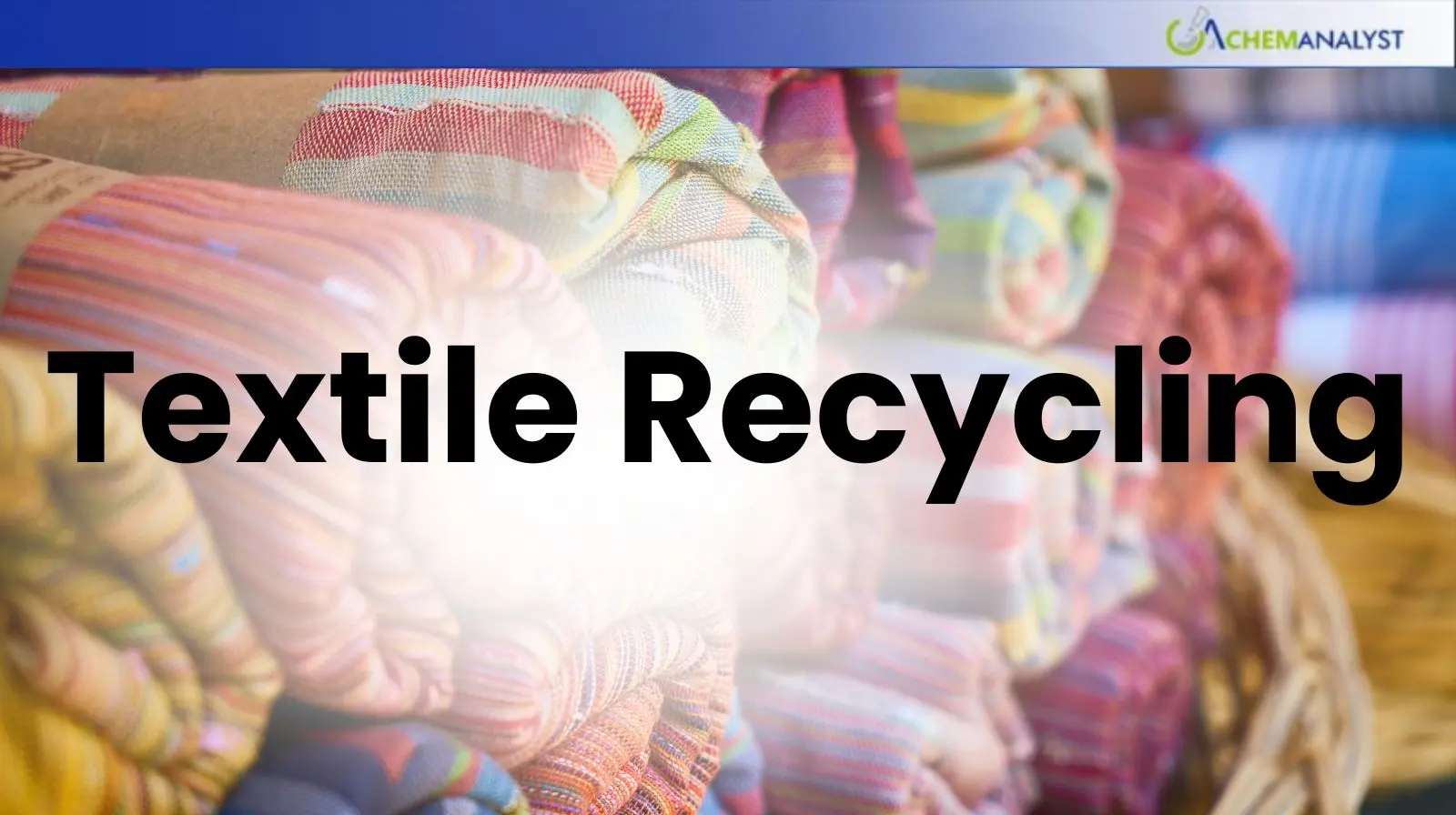Welcome To ChemAnalyst

Erema partners with BlockTexx to scale post-consumer textile recycling, combining technology, expertise, and investment to close the fiber loop.
Erema has formalized a strategic partnership with Australian startup BlockTexx Pty. Ltd., aimed at transforming post-consumer textile recycling. The deal was signed at K 2025, the international trade fair in Düsseldorf, Germany, marking a significant step for both companies in the sustainable materials sector. BlockTexx has developed an innovative technology capable of separating poly-cotton blends from post-consumer textiles, a challenge that has long hindered large-scale fiber recycling.
For Erema, a global leader in recycling equipment, this collaboration represents a natural progression into the fiber recycling market. The company has a strong history in fiber-to-fiber recycling of industrial textile waste and now intends to expand into the post-consumer textile sector. The ultimate objective is for the fiber segment to account for roughly half of Erema’s business in the coming years.
BlockTexx, in turn, gains not only financial backing through Erema’s minority stake but also access to the company’s extensive recycling expertise. Founder Adrian Jones explained during an interview on October 12 that the startup’s first plant in Australia already processes 10,000 tonnes of textiles annually. Plans for a second facility, designed to handle 50,000 tonnes per year, are underway. “Scaling operations at this level requires industrial partners with deep engineering knowledge — and that’s precisely what we found in Erema,” Jones said.
Erema CEO Manfred Hackl highlighted the partnership’s broader implications, including potential benefits for PET bottle recycling. With the PET fiber industry currently three times larger than the PET bottle industry, diverting PET bottles to textiles has been common. By enhancing post-consumer PET fiber recycling, the textile industry can eventually reduce reliance on bottle-derived material, allowing more PET bottles to be recycled in closed-loop systems. “The textile industry must close its own loop as bottle-to-bottle recycling gains prominence,” Hackl noted.
BlockTexx operates a 10,000-tonne facility south of Brisbane, with plans for a larger site in New South Wales. The companies first connected at a textile trade show in Milan, and the collaboration quickly developed based on mutual curiosity and a shared vision. “From the outset, Erema wanted to join us on this journey. There’s a strong foundation of trust and knowledge,” said BlockTexx co-founder Graham Ross.
Erema will employ its Intarema FibrePro:IV machine to recycle PET separated by BlockTexx. Trial runs have already seen recovered PET shipped to Austria, pelletized, and transformed into textiles and T-shirts, showcased at Erema’s exhibition at K 2025. Hackl emphasized that the company has invested heavily in R&D over the past several years, including building a dedicated 15-person team for textile recycling.
“Textile-to-textile recycling is essential, and I’m confident it will become mainstream in the next few years,” Hackl said. He likened the opportunity to the early skepticism surrounding bottle-to-bottle recycling, noting that PET fiber production represents a substantial business opportunity. While full parity with bottle recycling may take longer, Erema remains committed to scaling fiber recycling for the long term.
We use cookies to deliver the best possible experience on our website. To learn more, visit our Privacy Policy. By continuing to use this site or by closing this box, you consent to our use of cookies. More info.
